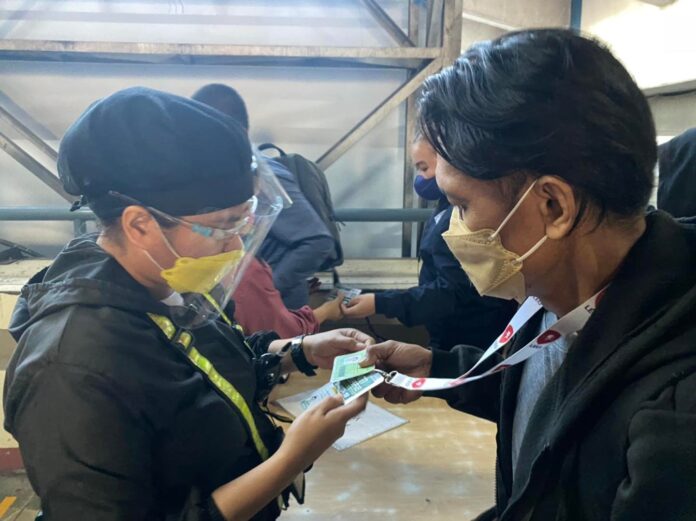
-
The Department of Transportation ordered enforcers to allow stranded passengers with children returning home to their provinces to travel
-
The order came amid the implementation of the “No Vaccine, No Ride” policy starting Jan 17
-
The order was given on January 19 after a television news report aired on the same day showing passengers with children bound for Bacolod and Zamboanga stranded at the Manila North Harbor
-
Transportation Secretary Arthur Tugade said “returning home” is considered a form of essential travel
-
Tugade reiterated his previous directive to all transport sectors to place vaccination stations in strategic places
Stranded passengers with children returning home to their provinces should be allowed to travel amid implementation of the “No Vaccine, No Ride” policy, according to the the Department of Transportation (DOTr).
Transportation Secretary Arthur Tugade gave the order on January 19 immediately after monitoring a television news report aired on the same day that showed passengers with children bound for Bacolod and Zamboanga were stranded at the Manila North Harbor.
According to the report, the passengers were not allowed to board because the parents were not vaccinated and had no proper requirements and documentation.
Tugade noted “returning home” is considered a form of essential travel.
“My instruction from the very beginning is plain and simple—The No Vaxx, No Ride/Entry policy should be implemented as patient and tolerant as possible, but firm,” Tugade added.
The transport chief said Philippine Ports Authority (PPA) general manager Jay Daniel Santiago assured that his instructions will be executed not later than the morning of January 20.
In a media briefing on January 18, Santiago said children accompanied by their parents or guardians and headed to their home province, not for “vacation” or “luxury” travel, are exempted from the No Vaccine, No Travel policy as long as proof can be shown that they are traveling home and their parents or guardians are fully vaccinated.
Tugade likewise reiterated his previous directive to all transport sectors to place vaccination stations in strategic places, similar to what the road sector has done and established at the Parañaque Integrated Terminal Exchange since July last year.
“I have also ordered the Toll Regulatory Board to consider having vaccination stations at NLEX and other Toll Roads. This is now being discussed by the TRB with toll operators,” Tugade said.
DOTr on January 17 started implementation of the controversial policy contained in DOTr Department Order (DO) No. 2022-001, which limits public transportation access to vaccinated individuals in the National Capital Region (NCR) under Alert Level 3 status or higher.
Issued on January 11, DOTr DO 2022-001 aims to restrict the movement of unvaccinated individuals in Metro Manila following an uptick in COVID-19 cases with the spread of the highly infectious Omicron variant.
DOTr DO 2022-001 applies to all domestic travel to, from, and within NCR via public transportation by land, air, and sea while the area is placed under Alert Level 3 status or higher.
Operators of public transportation were ordered to allow access only to fully vaccinated persons travelling to and from any areas within NCR.
DO 2022-001 states that a person is considered fully vaccinated against COVID-19 two weeks after receiving the second dose in a two-dose vaccination series, such as with the Pfizer or Moderna brand of vaccines, or two weeks after a single-dose vaccine such as with Johnson & Johnson’s Janssen vaccine.
Exempted from the policy are the following:
- Persons with medical conditions as evidenced by a duly signed medical certificate with name and contact details of the physician; and
- Persons who will procure essential goods and services, such as, but not limited to food, water, medical devices, public utilities, energy, work and medical and dental necessities as evidenced by a duly issued barangay health pass and other appropriate proof to support and justify such travel
Earlier, DOTr also clarified that workers of an industry allowed to operate under Alert Level 3 can still board public transport, even if unvaccinated, provided the person can present proof that he/she is going to work.




